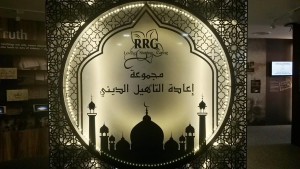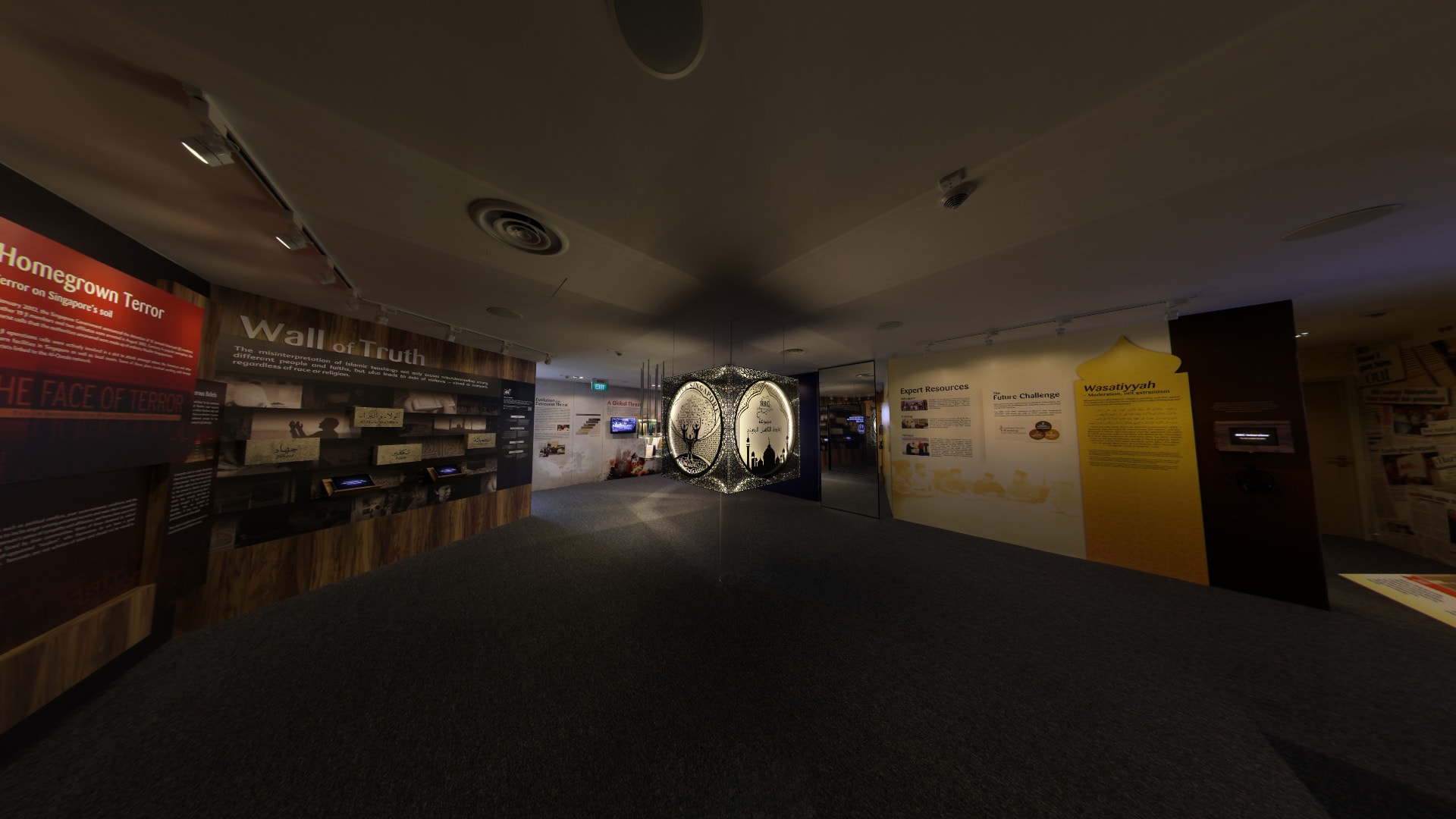About RRG
“Let there arise from among you a band of people who invite to righteousness, and enjoin good and forbid evil.”
(Qur’an, 3:104)
 RRG is an acronym for the Religious Rehabilitation Group. Formed and officially launched in 23 April 2003, RRG is a voluntary group consisting of individual ulama and a community of asatizah (Islamic scholars and teachers) in Singapore. Initially, RRG’s primary objective was to rehabilitate detained Jemaah Islamiah members and their families through counselling. However, it has since broadened its scope to include misinterpretations promoted by self-radicalised individuals and those in support of ISIS.
RRG is an acronym for the Religious Rehabilitation Group. Formed and officially launched in 23 April 2003, RRG is a voluntary group consisting of individual ulama and a community of asatizah (Islamic scholars and teachers) in Singapore. Initially, RRG’s primary objective was to rehabilitate detained Jemaah Islamiah members and their families through counselling. However, it has since broadened its scope to include misinterpretations promoted by self-radicalised individuals and those in support of ISIS.
The RRG’s mission is to correct the misinterpretation of Islamic concepts and dispel the extremist and terrorist ideologies they have been indoctrinated with. Rehabilitation seeks to counter detainees’ ideological misunderstanding of religion and help them come to terms with the fact that they have been misled. By acknowledging the inappropriateness of their behaviour, future criminal acts can be prevented. As the detainees’ ideology often affects their family members, RRG counsels the latter as well to avoid and disrupt the vicious ideological cycle.
Another important feature of the rehabilitation programme is to stimulate the minds of the detainees to understand Islam in the Singapore context. The program aims to show that living Islam rightfully in Singapore is practicable and fulfilling, in the hopes that such efforts would contribute towards preserving the safety and security of Singapore.
Besides its primary counselling and rehabilitation work, the RRG is also committed to building social resilience in the community through its outreach programmes. Since 2005, the RRG has organised conferences, forums, dialogue sessions and briefings to educate the community about key Islamic concepts which have often been misinterpreted by terrorist and extremist groups such as JI, Al Qaeda and ISIS.
1. Why was there a need to form RRG?
The formation of the RRG is recommended for a number of reasons. The Core Personnel of RRG who counselled the detainees felt that there was an urgent need to address the misinterpretations of several Islamic concepts such as jihad, bai’ah, hijrah, amongst others. The ideology, if not addressed carefully, is potentially dangerous as it will bring not only disharmony but more importantly loss of lives and property. The public and the community need to be engaged to gain a greater understanding that such misinterpretations does not represent Islam. This ideology has to be countered with the truth.
2. What are the roles of the ulama (religious scholars) and asatizah (religious scholars)?
According to Imam Zaynuddin Ibn Rajab, a renowned scholar, who died in Damascus in 795H, in his book “WarathatulAnbiya” (The Heirs of the Prophet), he stated three main roles of the asatizah: Firstly, we act as guides through darkness of ignorance. Secondly, we adorn the earth as beacons to show the right paths, and thirdly, we repel those who mix truth with falsehood and introduce wayward understanding of Islam.Thus the issue of the distorted ideology was discussed with several ulama (religious scholars) and asatizah (religious scholars). They too concluded that a concerted effort needs to be deployed to tackle the issue and religious rehabilitation is one approach that can be adopted. These ulama formed the Resource Group in RRG.
3. What is the Islamic position on extremism and radicalization?
Extremism and radicalization have no place in Islam. IbnuMas’ud related from Prophet Muhammad’s (pbuh) exclamations which he pronounced repeatedly three times:
“The extremists are destroyed, the extremists are destroyed, the extremists are destroyed.”
(Hadis narrated by Muslim, Abu Daud and Ahmad)


